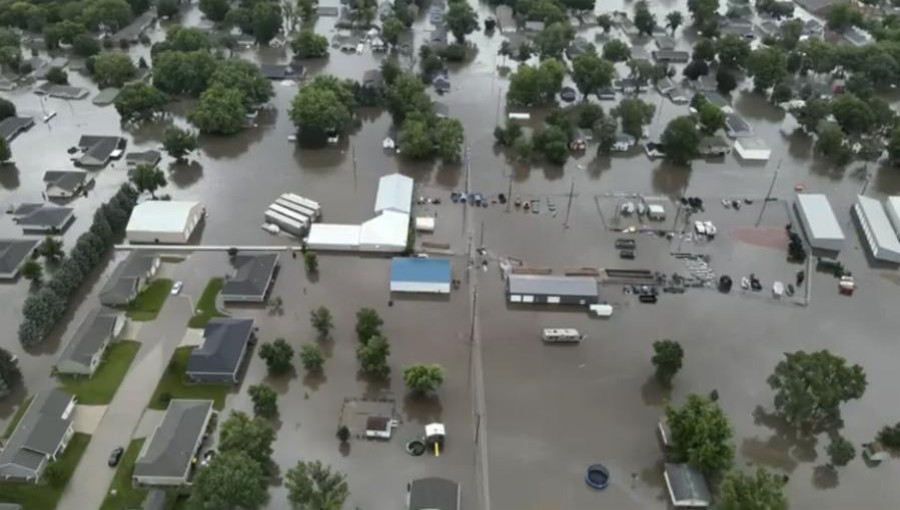The United States is grappling with extreme weather conditions as severe flooding and intense heatwaves sweep across different regions of the country. Torrential rains have inundated vast areas of the Midwest, particularly in South Dakota and Iowa, where some locations have recorded up to 84 cm of rainfall. This flooding has impacted over one million people, causing extensive damage to homes and infrastructure. In South Dakota, one death has been reported, prompting state officials to declare a state of emergency in at least 21 counties. Similarly, Iowa Governor Kim Reynolds has declared a state of emergency due to the heavy rains and flooding.
Meanwhile, an intense heatwave is affecting the Mid-Atlantic to the Mississippi Valley, with average daily temperatures soaring to around 41 degrees Celsius. Heat alerts have been issued in Oklahoma, Washington DC, New York, and Baltimore. The National Weather Service has warned that the heatwave, which has arrived earlier than usual and is expected to last longer, could push temperatures in Baltimore and Philadelphia to 38 degrees Celsius on Monday (June 24). This extreme heat is at least 15 degrees above normal and is also expected in states like Idaho, Montana, and Wyoming.
Experts are attributing these extreme weather patterns to the impacts of climate change. The early onset and prolonged duration of the heatwave are particularly concerning, indicating a shift in climate norms. In the flooded areas, evacuations and emergency services are ongoing to assist those affected. In regions under heat alerts, residents are advised to stay hydrated, avoid outdoor activities during peak heat hours, and check on vulnerable individuals such as the elderly and those with health conditions.
These dual crises highlight the increasing frequency and severity of weather-related events in the U.S., underscoring the urgent need for climate resilience and adaptation strategies. The situation remains critical as authorities continue to manage the impacts and assist affected communities.






























Comment: